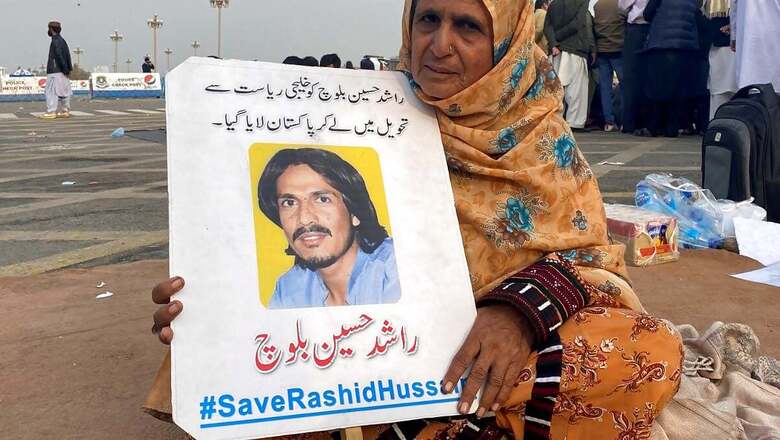
views
Pakistan Human Rights Commission’s vice-chairman advocate Habib Tahir alleged the Pakistan deep state used enforced disappearances on a large scale to suppress dissent. On Thursday, Tahir released the Human Rights Commission of Pakistan’s (HRCP) 33-page fact-finding report on rights violations in Balochistan titled “Balochistan’s Struggle for Hope”.
The HRCP in the report pointed out that it remains concerned about enforced disappearances, curbs on press freedom, and growing frustration on economic exclusion and allegations of political manipulation.
The HRCP said it finds Pakistan using enforced disappearances to muzzle dissent in the region.
The report quoting one civil society activist in Turbat, Balochistan’s second-largest city, says that boys who are yet to reach their teens have been arrested and held by Pakistan’s law enforcement officials.
The activist said that the threat of enforced disappearances is directed towards university or college-going students. My cousin [a student at the University of Turbat] was picked up [allegedly by security agencies] and released after more than three years. The risk that any of us could be next has made us fearful of attending university at all,” a student told the fact-finding team.
Representatives of Voice for Baloch Missing Persons in Quetta, Mama Qadeer and Nasrullah Baloch, who for the past decade have protested and campaigned against forced disappearances said 500 Baloch persons were forcibly disappeared in 2022 alone, while 40–50 dead bodies were recovered. Qadeer said the deaths were results of extrajudicial killings.
The Hazara community in Balochistan, who are mostly Shia Muslims, said due to the fear of ethnic violence they require an armed escort to visit Quetta’s main markets to purchase groceries and essential items for daily needs.
Every day, a convoy of 30-40 vehicles departs from these areas, and residents are instructed that they only have two or three hours at most to buy what they need, the report said.
Students also lamented to the fact-finding team that they are unable to develop political consciousness because the universities in the region banned political events and discussion in the university campus.
The students also are compelled to sign an affidavit where they promise not to take part in such activities.
The report also said that Baloch students are subjected to racial profiling and illegal detention while studying at well-known universities in Lahore, Bahawalpur, Karachi and Islamabad. One rights activist in Turbat highlighted that “like Balochistan, even Punjab is becoming unsafe for our children to study.”
(with inputs from the Dawn)
Read all the Latest News here




















Comments
0 comment